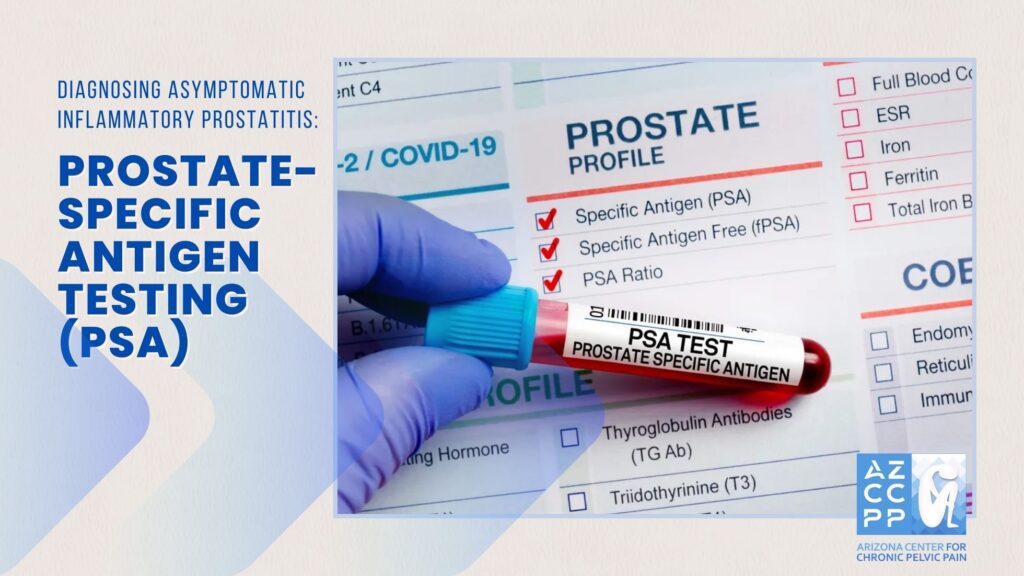Prostate-specific antigen testing or PSA testing has long been utilized as a diagnostic tool in monitoring prostate health. For men with prostatitis, a condition characterized by inflammation of the prostate gland, PSA levels can be an essential marker in assessing the severity and progression of the disease. This article delves into the intricacies of PSA testing in the context of prostatitis, exploring its significance, interpretation, and implications for clinical management.
Understanding Prostatitis and Its Impact on PSA Levels
Prostatitis is a prevalent condition among men, often resulting in a significant increase in PSA levels. The inflammation associated with prostatitis leads to the leakage of PSA from the prostate cells into the bloodstream, thereby elevating the serum PSA concentration. Acute bacterial prostatitis and chronic prostatitis/chronic pelvic pain syndrome (CP/CPPS) are the two primary forms of the condition, each influencing PSA levels differently.
In cases of acute bacterial prostatitis, the PSA levels can rise dramatically due to the intense inflammatory response. Conversely, chronic prostatitis may cause a more moderate increase in PSA levels. It is crucial for clinicians to distinguish between prostatitis-induced PSA elevation and PSA elevation due to other conditions, such as benign prostatic hyperplasia (BPH) or prostate cancer.
Diagnosing AIP: The Role of Prostate-Specific Antigen Testing
PSA testing is not a definitive diagnostic tool for prostatitis, but it plays a complementary role in the overall clinical assessment. Elevated PSA levels, in conjunction with symptoms such as pelvic pain, dysuria, and urinary frequency, may prompt further investigation into prostatitis as a potential diagnosis. However, it is imperative to conduct a thorough differential diagnosis to rule out other possible causes of PSA elevation, particularly prostate cancer.
PSA density and PSA velocity are additional parameters that can aid in the diagnostic process. PSA density, which is the ratio of PSA level to prostate volume, can help differentiate between prostatitis and other prostate conditions. A higher PSA density may indicate a higher likelihood of prostatitis. PSA velocity, the rate of change in PSA levels over time, can also provide valuable insights. A rapid increase in PSA levels over a short period may suggest acute prostatitis, while a more gradual rise may be indicative of chronic prostatitis or other conditions.
Interpreting PSA Levels in the Presence of Prostatitis
Interpreting Prostate-Specific Antigen (PSA) levels in men diagnosed with prostatitis presents a unique set of challenges. Prostatitis, an inflammation of the prostate gland, can cause PSA levels to rise, complicating the diagnostic process. Here are key factors clinicians should consider for accurate interpretation of PSA results in this context:
-
Baseline PSA Levels
Establishing a baseline PSA level prior to the onset of prostatitis symptoms is essential for accurate interpretation. This baseline measurement provides a reference point against which subsequent PSA levels can be compared. If a patient’s baseline PSA is known, current elevations can be more reliably attributed to prostatitis rather than other conditions, such as prostate cancer. In cases where a baseline is not available, historical PSA data and the patient’s clinical history should be used to estimate the degree of elevation that might be attributed to prostatitis.
-
PSA Fluctuations
PSA levels in men with prostatitis are often not static and can fluctuate significantly, particularly during episodes of acute inflammation or infection. It is critical to monitor PSA levels over time, rather than relying on a single measurement, to identify patterns. These fluctuations can indicate the presence of chronic inflammation or other underlying issues. By tracking PSA trends, clinicians can differentiate between temporary spikes due to acute prostatitis and persistent elevations that might warrant further investigation.
-
Prostate Volume
Prostate enlargement, whether due to benign prostatic hyperplasia (BPH) or prostatitis, can contribute to elevated PSA levels. Evaluating prostate volume through imaging studies, such as transrectal ultrasound (TRUS), provides additional context for interpreting PSA results. An enlarged prostate can lead to higher PSA levels, and understanding the degree of enlargement helps clinicians assess whether PSA elevations are attributable to prostatitis or other conditions. Imaging studies also help in monitoring the progression of prostatitis and guiding treatment decisions.
-
Recent Prostate Manipulation
Recent manipulation of the prostate, such as digital rectal exams (DRE) or prostate biopsies, can cause temporary increases in PSA levels. These procedures can lead to transient PSA elevations that may not necessarily reflect underlying prostate pathology. Clinicians need to consider the timing of such interventions when interpreting PSA results. Waiting for a period after such procedures before re-evaluating PSA levels can help in distinguishing between temporary increases due to manipulation and persistent elevations related to prostatitis or other conditions.
By considering these factors, clinicians can enhance the accuracy of PSA interpretation in men with prostatitis, thereby improving diagnostic precision and guiding appropriate management strategies.
Clinical Management and Monitoring of Prostatitis with PSA Testing
PSA testing is a valuable tool in the ongoing monitoring and management of prostatitis. While it is not a standalone diagnostic measure, it can provide insights into the severity of the condition and the effectiveness of treatment interventions.
-
Acute Prostatitis
In cases of acute bacterial prostatitis, the primary goal is to eradicate the infection and reduce inflammation. Antibiotic therapy is the cornerstone of treatment, and PSA levels are expected to decrease as the infection resolves. Serial PSA testing can be useful in tracking the response to treatment. A significant reduction in PSA levels following antibiotic therapy suggests effective management, while persistent elevation may indicate the need for further evaluation or a change in therapeutic approach.
-
Chronic Prostatitis/Chronic Pelvic Pain Syndrome (CP/CPPS)
Chronic prostatitis, particularly CP/CPPS, presents a more complex challenge in terms of management. The etiology of CP/CPPS is multifactorial, with contributions from immune, neurological, and psychosocial factors. PSA levels in CP/CPPS may remain elevated for extended periods, reflecting ongoing inflammation and tissue damage.
Treatment strategies for CP/CPPS often involve a combination of antibiotics, anti-inflammatory medications, alpha-blockers, and lifestyle modifications. Regular PSA testing can help gauge the effectiveness of these interventions, although the correlation between PSA levels and symptom improvement is not always straightforward. Clinicians should interpret PSA results in conjunction with symptomatology and other clinical findings to guide management decisions.
The Implications of Persistent PSA Elevation in Men with Prostatitis
Persistent elevation of PSA levels in men with prostatitis warrants careful consideration, as it may indicate underlying pathology beyond inflammation. Prostate cancer remains a significant concern, particularly in older men or those with risk factors such as a family history of the disease.
Differentiating Between Prostatitis and Prostate Cancer
Differentiating between prostatitis and prostate cancer in the context of elevated PSA can be challenging. Multiparametric MRI (mpMRI) and prostate biopsy are essential tools in this differentiation. mpMRI provides detailed imaging of the prostate, allowing for the identification of suspicious lesions that may warrant further investigation. A targeted prostate biopsy, guided by mpMRI findings, can confirm the presence of malignancy or rule out cancer as the cause of PSA elevation.
Prostate Biopsy Considerations
In men with prostatitis, the decision to perform a prostate biopsy should be made cautiously. Prostate biopsy can exacerbate inflammation and lead to further increases in PSA levels. Additionally, the presence of inflammation can complicate the interpretation of biopsy results. Clinicians must weigh the risks and benefits of biopsy on a case-by-case basis, considering factors such as the degree of PSA elevation, imaging findings, and overall clinical context.
Conclusion
Prostate-specific antigen testing is a critical component in the evaluation and management of men with prostatitis. While PSA levels alone cannot definitively diagnose prostatitis, they provide valuable insights into the extent of inflammation and the effectiveness of treatment interventions. Clinicians must adopt a comprehensive approach to interpreting PSA results, considering the myriad of factors that can influence PSA levels in men with prostatitis. Ongoing research and advances in diagnostic imaging and molecular markers hold promise for improving the accuracy and utility of PSA testing in this complex clinical scenario.
READ MORE: On Men’s Health: What Is Asymptomatic Inflammatory Prostatitis
On Men’s Health: What Is Asymptomatic Inflammatory Prostatitis
Contact Us for Chronic Pelvic Pain Treatment for Men

If you’re experiencing symptoms of Asymptomatic Inflammatory Prostatitis or AIP, don’t delay seeking medical attention. Contact the Arizona Center for Chronic Pelvic Pain for expert diagnosis and personalized treatment. Our experienced team specializes in managing pelvic pain conditions and can provide the care you need to feel better. Call us at (480) 599-9682 or email [email protected] to schedule an appointment.
AZCCPP offers comprehensive evaluation, personalized treatment plans, and compassionate care to help you find relief. Contact us today at (480) 599-9682 or [email protected] to schedule an appointment. You may also check out AZCCPP on YouTube for more questions that need answers with Dr. Michael Hibner.
By understanding the symptoms, causes, diagnosis, and treatment options for Asymptomatic Inflammatory Prostatitis you can take proactive steps to manage this condition effectively and regain your quality of life.

